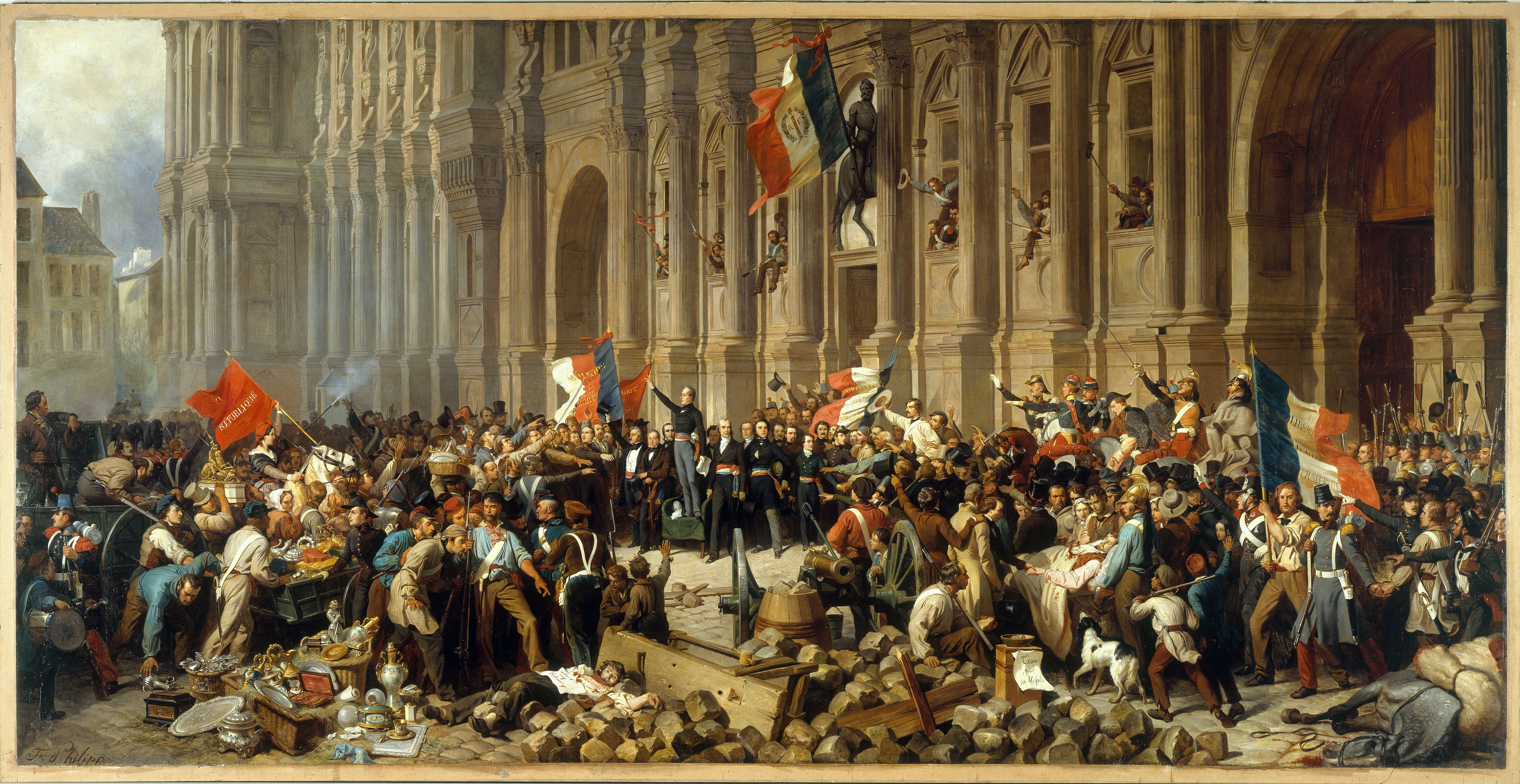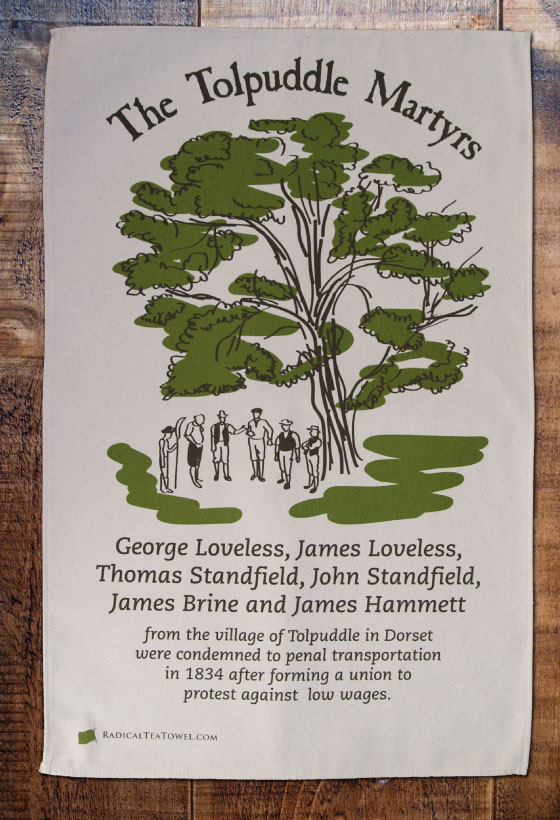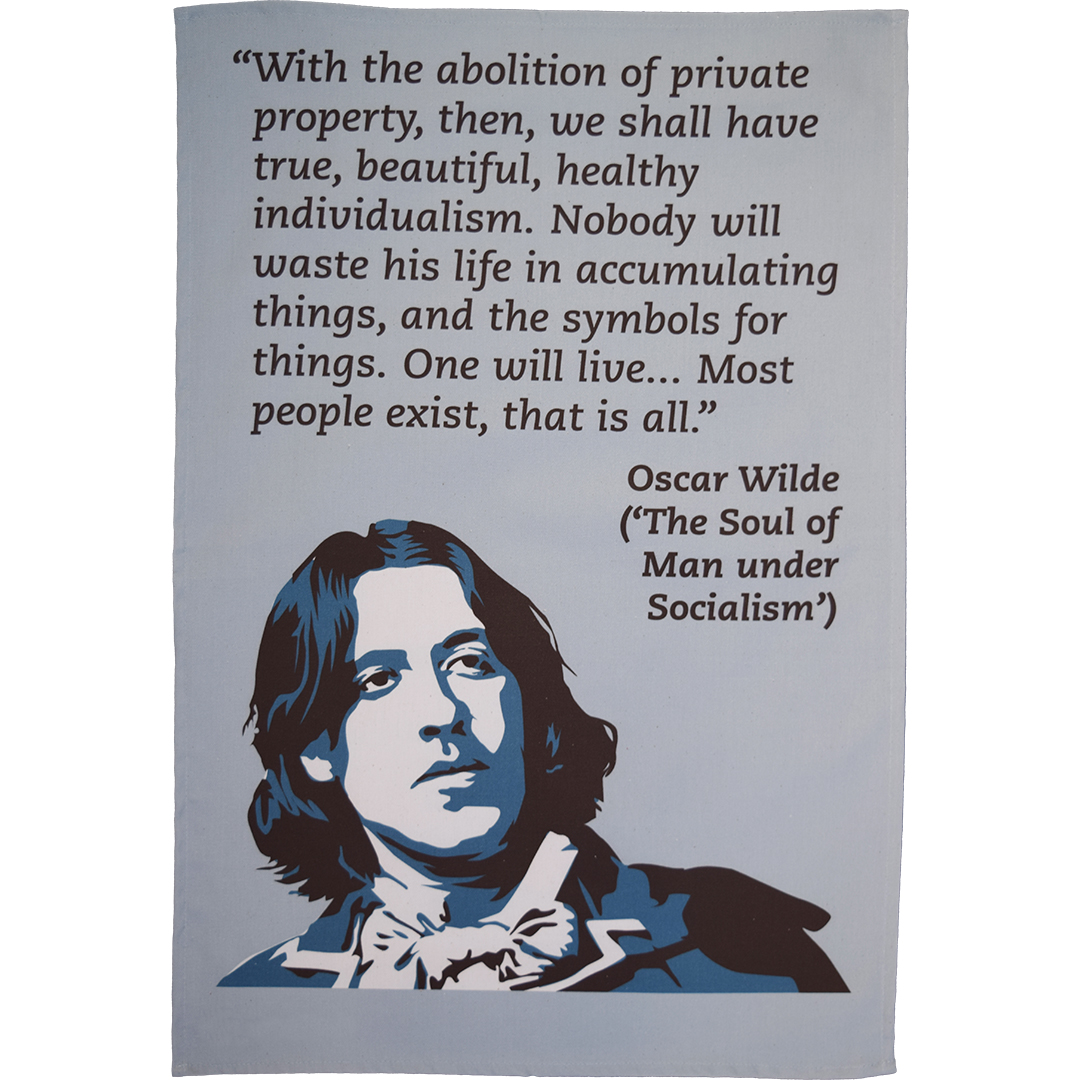What "Radical" Means to Us
Posted by Tom on 16th Apr 2021
It's a word we throw around a lot... but what do we actually mean?

People often ask us at Radical Tea Towel: Why don’t you make tea towels about right-wing figures? Isn’t Nigel Farage a pretty radical guy?
Now these questions may be tongue-in-cheek, but they do pose an important point: what do we mean by ‘radical’? And is radicalism necessarily left-wing?
Well, the best place to begin is probably the beginning – that is, the first time the word was used in a political context.
The Oxford English Dictionary traces it back to the late 18th century, when the word ‘radical’ described the progressive movements fighting for electoral reform and wider suffrage.
But radicalism wasn’t just about opening up democracy. Inspired by the French Revolution, it was also often a fight for equality and freedom, for republicanism or the abolition of aristocracy.

These radicals did not look to the past, nostalgic for some bygone era: they looked with hope to the future.
Radical societies and organisations were set up across the United Kingdom. In fact, radicalism was so popular that the government tried to stamp it out with the Seditious Meetings Act of 1795.
The point is that this was a grass-roots movement. It may have had a few parliamentary advocates, but it really gained traction among ordinary people. And that’s why those in power were so afraid.
Think of the Tolpuddle Martyrs, who founded the Friendly Society of Agricultural Labourers to protest against the cutting of wages. Or the Luddites, who destroyed textile machinery to protest against poor working conditions and rising unemployment.
It was radical movements like this that inspired Marx and Engels when they were formulating their political philosophy. In 1845, the two of them visited England to meet the leaders of the Chartists, a working class movement fighting for universal male suffrage.
These movements shouldn’t be seen as distinct from each other. In fact they were often deeply interconnected: the leader of the Tolpuddle men, George Loveless, later went on to become an active Chartist.

So ‘radical’ used to refer specifically to progressive working-class groups like this. They might have had slightly different aims, but together they form the history of radicalism in 19th century Britain.
So what the hell happened to the word ‘radical’?
Nowadays it’s been almost completely excavated of meaning, and it tends to be used simply to describe the strength of someone’s opinions. In short, it’s become synonymous with extremism and often violence.
True, some radicals may be seen as ‘extreme’ by those who disagree with them, but the conflation of radicalism and extremism is a mistake – if only because it completely ignores the history and etymology of the word ‘radical’.
It actually comes from the Latin word ‘radix’, meaning ‘root’. So to be radical, as Angela Davis has argued, means “grasping things at the root.”
And what does that mean? Well, it means fundamentally changing the nature of society. Or rather, it means creating a new society.

Oscar Wilde gives us a good example of this in his essay “The Soul of Man Under Socialism”.
As Wilde argues, we must address the root cause of society’s problems, rather than simply trying to remedy the symptoms. Wilde didn’t want painkillers, he wanted to cut out the tumour – and for Wilde, the tumour was the capitalist system itself.
As he puts it, the aim is not to reduce poverty, it is “to try and reconstruct society on such a basis that poverty will be impossible."
So radicalism has its origins in the grass-roots (‘radix’) movements of the 19th century. And these working-class movements changed and developed into many of the left-wing ideas and movements that we recognise today: socialism, trade unionism, social liberalism, anti-racism, and so on.
We don’t have a fixed definition of the word ‘radical’. And frankly, we wouldn’t want to limit ourselves with one.
But we do want to reclaim the word from those who think that radicalism simply means extremism.
We care a lot about history. And when we call ourselves Radical Tea Towel, this is the history we want to invoke: the history of those who fought for the rights we have today, whether it’s the right to vote, the right to freedom, or the right to organise.
And to answer the question about Farage, well – an ex-banker in a pin-stripe suit who wants to take us back in time? He may have extreme views, but there’s nothing radical about him.
Anyway, enough about what we think – what does ‘radical’ mean to you?
